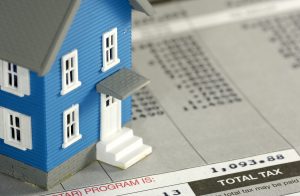April 11, 2017

Unfortunately, it is that time of year again…tax season. However, I’m not talking about personal income tax, but real estate tax appeals.
The deadline for filing a real estate tax assessment appeal for property owners in Bucks, Chester, Delaware, and Montgomery Counties is August 1, 2017 and October 2, 2017 for property owners in Philadelphia. In addition, residents of the surrounding counties may have limitations on how early they can file their tax assessment appeals. More importantly, deadlines in all counties is absolute, which means that missing the deadline can result in you losing your appeal rights until 2019. While this may seem like a minor issue, filing your assessment appeal too early in certain counties can be as detrimental as missing the deadline. For example, in Chester County, appeals may only be filed from May 1st until the first business day in August (this year, August 1, 2017); while Delaware County residents are permitted to file their assessment appeals as early as March (this year, March 15, 2017). However, regardless of when your deadline is, now is the time to start considering whether you want to appeal your real estate tax assessment for 2018.
For property owners throughout Pennsylvania, your property’s assessed value is the value used in calculating your real estate tax liability for your county, school district and municipality. Keep in mind that your property’s assessed value is typically some percentage of your property’s fair market value. When reviewing your tax bill, the simplified method of determining your property’s total assessed value is by adding the value assigned to your land to the value of the improvements on the parcel you own. The total assessed can the be used in calculating your property’s fair market values and should be closely reviewed.
Philadelphia County is the most recent county to have assessment changes, as most other surrounding counties have not completed county-wide reassessments in over 10 years. For example, Delaware County has not had a county-wide reassessment since as far back as 2000, but due to a recent court order, the county is now required to complete a county-wide reassessment to become effective January 1, 2021. As a result of this recent court decision it is anticipated that other counties will follow Delaware County and complete a county-wide assessment. Therefore, property owner’s in counties that have not had county-wide reassessments in the last decade should not become complacent with their properties’ assessed value and should take notice of any changes in their tax assessments every year. Delaware County residents may also want to consider if they want to appeal their 2018 assessment or wait until the county-wide assessment becomes effective in 2021.
However, a county reassessment is not the only thing that may trigger the reassessment of your property. If you make any improvements to your home or a piece of undeveloped land that you own, your property may be reassessed.
In general, it is a good idea for property owners to always check and compare your property’s assessment annually to make sure that your tax assessment appropriately reflects what your property is worth. Staying on top of your property’s assessment will ensure that if the property is overvalued, you will be able to take the necessary action to make sure you are paying the appropriate amount of real estate taxes.
to summarize, when considering whether to appeal your property’s assessment for 2018, you should take the following into consideration: (1) how your property’s fair market value compares with its current value and recent property sales in your area; (2) if your recently purchased your property, whether your purchase price is consistent with your most recent assessment; and (3) if your property was recently appraised, whether the appraised value is consistent with the fair market value as determined by your assessed value.
If you need help deciding if an appeal is worthwhile or with the process in general, consulting a knowledgeable real estate attorney can make all the difference in the successful lowering of your property tax liability. For more information on the assessment changes that have impacted Philadelphia property owners‘ taxes for 2017, please see our blog about Philadelphia Tax Assessment Appeals.
If you have any questions about tax assessment appeals, please contact us at 610-275-0700 or via email at main@highswartz.com.
The information above is general: we recommend that you consult an attorney regarding your specific circumstances. The content of this information is not meant to be considered as legal advice or a substitute for legal representation.
